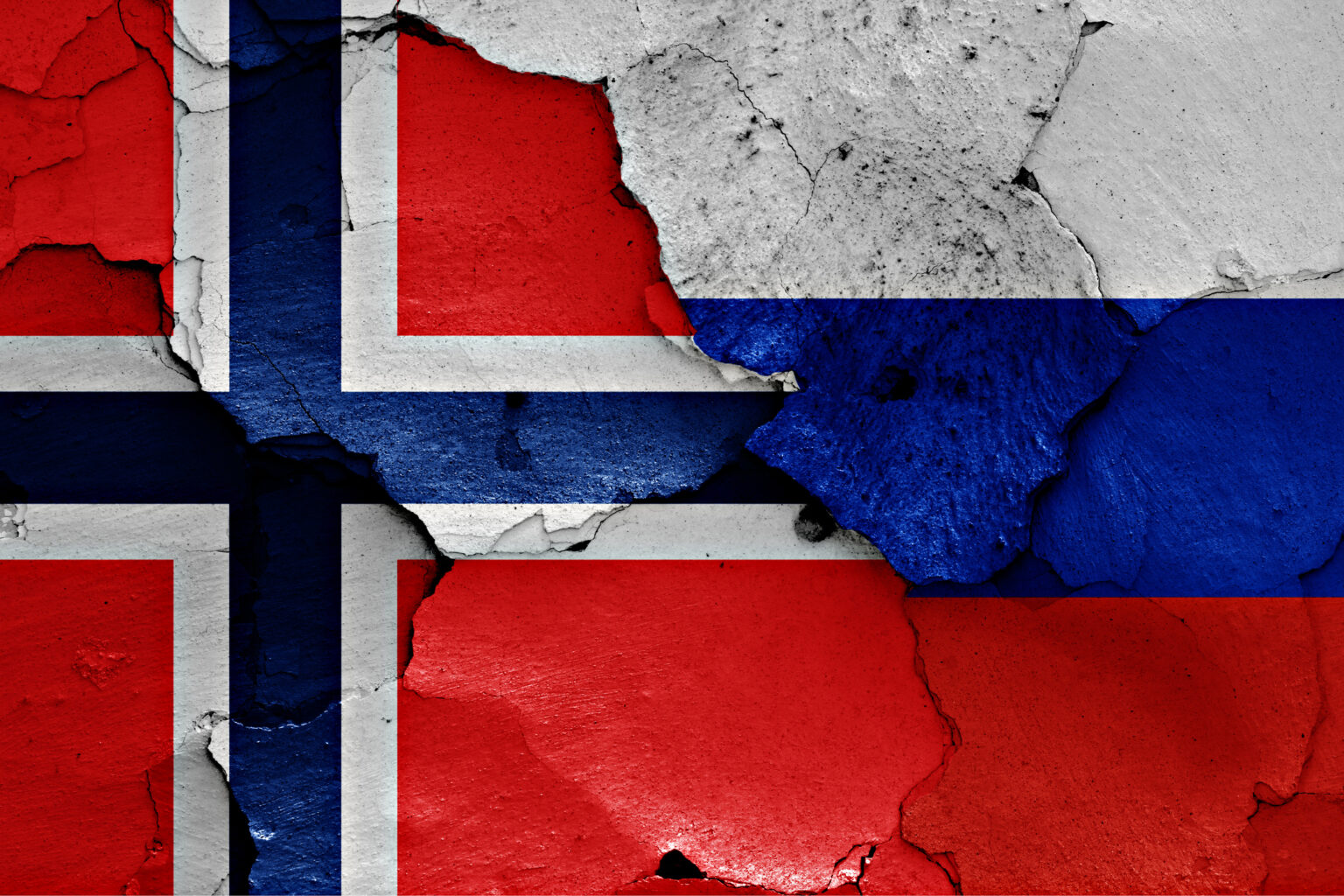Relations between Norway and Russia have become strained after repeated sabotage incidents that have been linked to Russia. The latest incidents occurred in the Norwegian Arctic near military installations. AFP/GETTY IMAGES
THE WATCH STAFF
Norway is responding to repeated acts of sabotage, including at military installations in the increasingly contested Arctic region. Most recently, in early September 2024, a jamming device set up in advance of military testing near Norway’s Andøya Arctic military base was damaged when someone cut a cable. The jammer had been set up at the far northern island as part of an international exercise to test navigation systems and other equipment during electromagnetic warfare, the Norwegian newspaper Forsvarets Forum reported.
Anders Rødningsby, chief scientist at the Norwegian Defence Research Establishment, told Forvarets Forum that the cable cutting might have been sabotage. “There are many indications that this is not an accident but a deliberate act. These are robust cables, and you will have to step pretty hard on them to cut,” he explained. “We do not know who might have done it. We cannot exclude that someone is making a prank. It is more serious if someone has done it on purpose. In that case, we have a challenge.”
Norwegian authorities are still investigating an April 2024 sabotage incident involving the severing of a critical communications cable at its Evenes Air Station in the Arctic. The Evenes station is a key base for the Norwegian Air Force. Located north of the Arctic Circle, the base hosts Norway’s fleet of Poseidon-8 maritime surveillance aircraft as well as F-35s. This incident is believed to be an intentional act, according to Norwegian news reports in August 2024.
These attacks on critical infrastructure in the Arctic are the latest in a growing trend dating back to the onset of the 2022 Russian invasion of Ukraine. In 2022, a fiberoptic cable connecting the Arctic Archipelago of Svalbard with the Norwegian mainland was disrupted after what investigators believe could have been sabotage. In November 2021, the Norwegian Marine Research Institute said its Lofoten-Vesterålen Ocean Observatory was out of service after about 4 kilometers of a 60-kilometer underwater cable had disappeared. And in 2023, the Russian-linked Chinese vessel NewNew Polar Bear became a key suspect in the disruption of a gas pipeline and two communication cables in the Baltic Sea. The ship soon fled into Russian Arctic waters following the incident.
The repeated acts of sabotage accompany numerous other Russian-sponsored incursions in recent years as detailed in a September 2024 New Yorker investigation. They have caught the attention of Norwegian and NATO leaders. “The current security situation is serious. There is a full-scale invasion war ongoing in Europe. We are standing at a crossroads,” said Norwegian Defense Minister Bjorn Arild Gram early in 2024 when Norway’s three intelligence agencies presented their annual reports, according to the Barents Independent Observer online newspaper.
Gram’s comments were echoed months later by NATO Secretary General Jens Stoltenberg, who described what the alliance identified as “a surge of sabotage, cyber-attacks, instrumentalized migration, and other hostile actions by Russia.” Stoltenberg’s June 2024 comments urged more “increased intelligence exchange, enhanced protection of critical infrastructure, including undersea and in cyberspace, and further restrictions on Russian intelligence operatives” to stymie Russia’s hybrid operations campaign, which has also been deployed in Germany and Finland, prompting Helsinki to close its land border with Russia.

